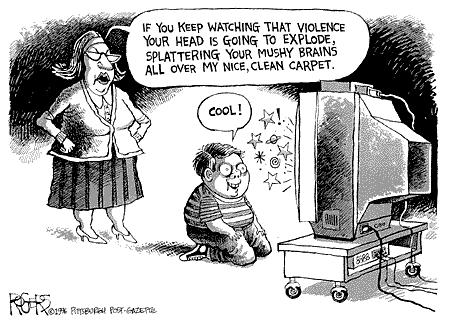What does the Cultivation theory propose? Cultivation Theory: Explanation of Theory: Gerbner’s cultivation theory says that television has become the main source of storytelling in today’s society. Those who watch four or more hours a day are labeled heavy television viewers and those who view less than four hours per day, according to Gerbner are light viewers. Heavy viewers are exposed to more violence and therefore are effected by the Mean World Syndrome, an idea that the world is worse than it actually is. According to Gerbner, the overuse of television is creating a homogeneous and fearful populace. Metatheoretical Assumptions: Ontological Assumptions: determanistic——-X——free will Epistemological Assumptions: Truth——————X—————truths Axiological Assumptions: value neutral———X————value laden Individual Interpretations and Critique: The cultivation theory is a scientific theory. Epistimologically speaking, Gerbner believes in one truth. The theory does not believe television viewers have a choice in whether they are effected by media violence or not. […]
Theory of Spiral of Silence
Theory of Spiral of Silence: Elisabeth Noelle-Neumann, the German political scientist contributes the famous model called “Spiral of Silence”. In 1947 Neumann and her husband found “Public Opinion Organization” in German and also she was a President of “World Association for Public Opinion Research” in 1978 to 1980. Through this Spiral of Silence theory Neumann indirectly explains the Jews status during World War II under Nazi’s control. Here, Adolf Hitler dominated the whole society and the minority Jews became silent due to the fear of isolation or separation. Theory: The one view dominated the public scene and others disappeared from the public awareness as it adherents became silent. In other words, the people fear of separation or isolation those around them, they tend to keep their attitudes to themselves when they think they are in the minority. This process is called “Spiral of Silence”. Explanation of Theory: The Spiral of […]
Knowledge Gap Hypothesis
Knowledge Gap Hypothesis: Introduction: This theory is concerned mainly with “information” and “knowledge” and emphasizes that knowledge is not distributed equally throughout society. There are haves and have-nots with regard to information just as material wealth Information is very important in our society because any developed country depends on well-informed citizens. It appears certain that information will be even more important in the future as we move into an increasingly technological age. Many contemporary issues will require information and an informed public for the solutions for such issues. Role of mass communication: * One of the great promises of mass communication is that it provides people with information they need. * It has the potential of reaching people who have not been reached by other means (poor and undeveloped people). One example of an effort to use mass communication to provide information to the disadvantaged is the “educational TV program” […]
Priming Theory
What is priming? Explain the term scientifically. What is Priming Theory? If you have you ever heard a new word for the first time in your life and then suddenly noticed it popping up everywhere from the news to your grandmother’s dinner conversation, you know that the human brain can be primed to notice things that it ordinarily would completely overlook. The same thing happens when the press begins spending time on an issue that might ordinarily simmer on a back burner; once the issue becomes news, it tends to become relevant. When the public begins to view candidates in light of a particular issue that has been brought up by the media even though it was not a consideration prior to its introduction, it is an example of the priming effect. For example, in spite of the fact that no one cared about whether the candidates recycled just […]
Agenda setting theory (Maxwell McCombs and Donald L.Shaw)
Discuss the agenda setting theory. Your answer should give background of the agenda setting theory, main findings of the Chapel Hill Study and the need for conducting Charlotte Study. Agenda setting theory (Maxwell McCombs and Donald L. Shaw) Media influence affects the order of presentation in news reports about news events, issues in the public mind. More importance to a news-more importance attributed by audience. Media Priorities It says what people should think about and how people should think about. These are the levels of agenda setting theory: First Level: Mostly studied by researchers, media uses objects or issues to influence the people what people should think about. Second level: Media focuses on the characters of issues how people should think about. Agenda setting theory used in political ad, campaigns, business news, PR (public relation) etc. The main concept associated with the agenda setting theory is gate keeping. Gate […]
The Role of the Community in Decision Making
Highlight the role of community in decision making. The Role of the Community in Decision Making: It also became clear that although the earlier research had allowed for the study of individual decisions, it did not permit study of decision making on a community level. The next study introduced the notion of diffusion, or widening communication of a new idea, over time through the social structure of a community (Katz, 1957). The diffusion study examined how medical doctors make decisions to adopt new drugs. All doctors in several specialties in four Midwestern cities were interviewed. Besides the usual demographic data (age, medical school attended, etc.) and data about attitudes, prescription of drugs, exposure to information sources and influence, and other details, the doctors were asked to name the three colleagues they were most apt to talk with about cases, the three they were most apt to seek information and […]
